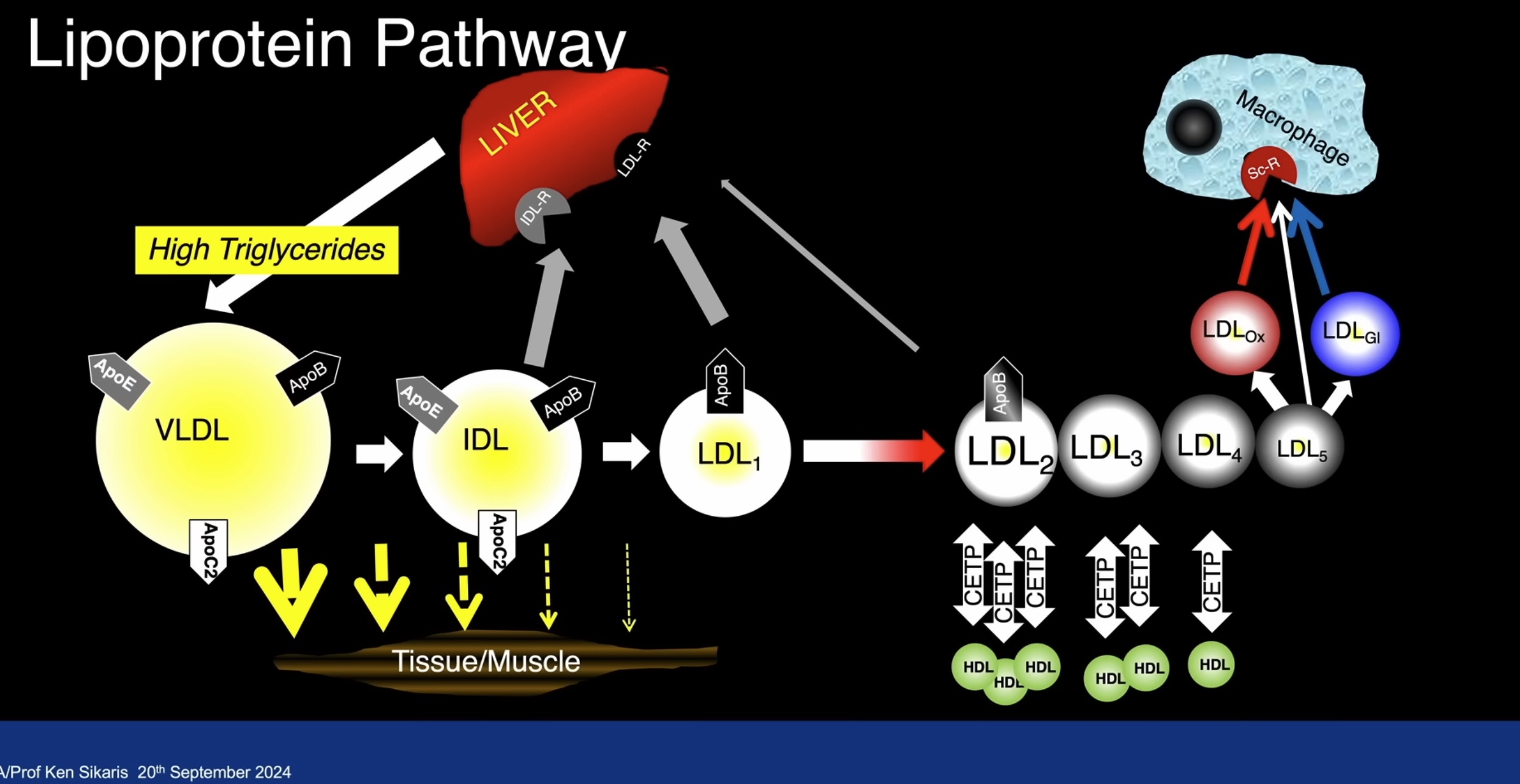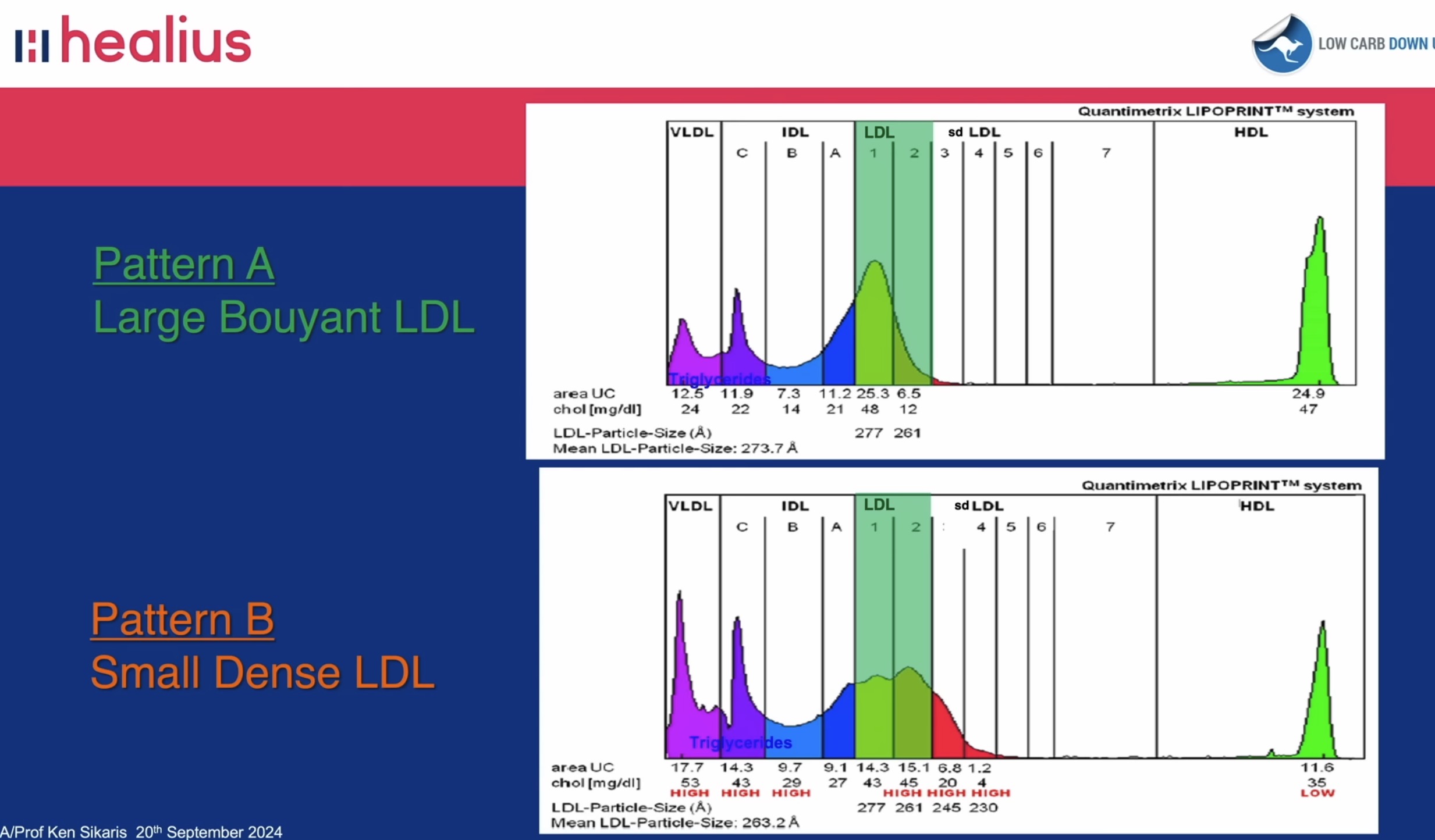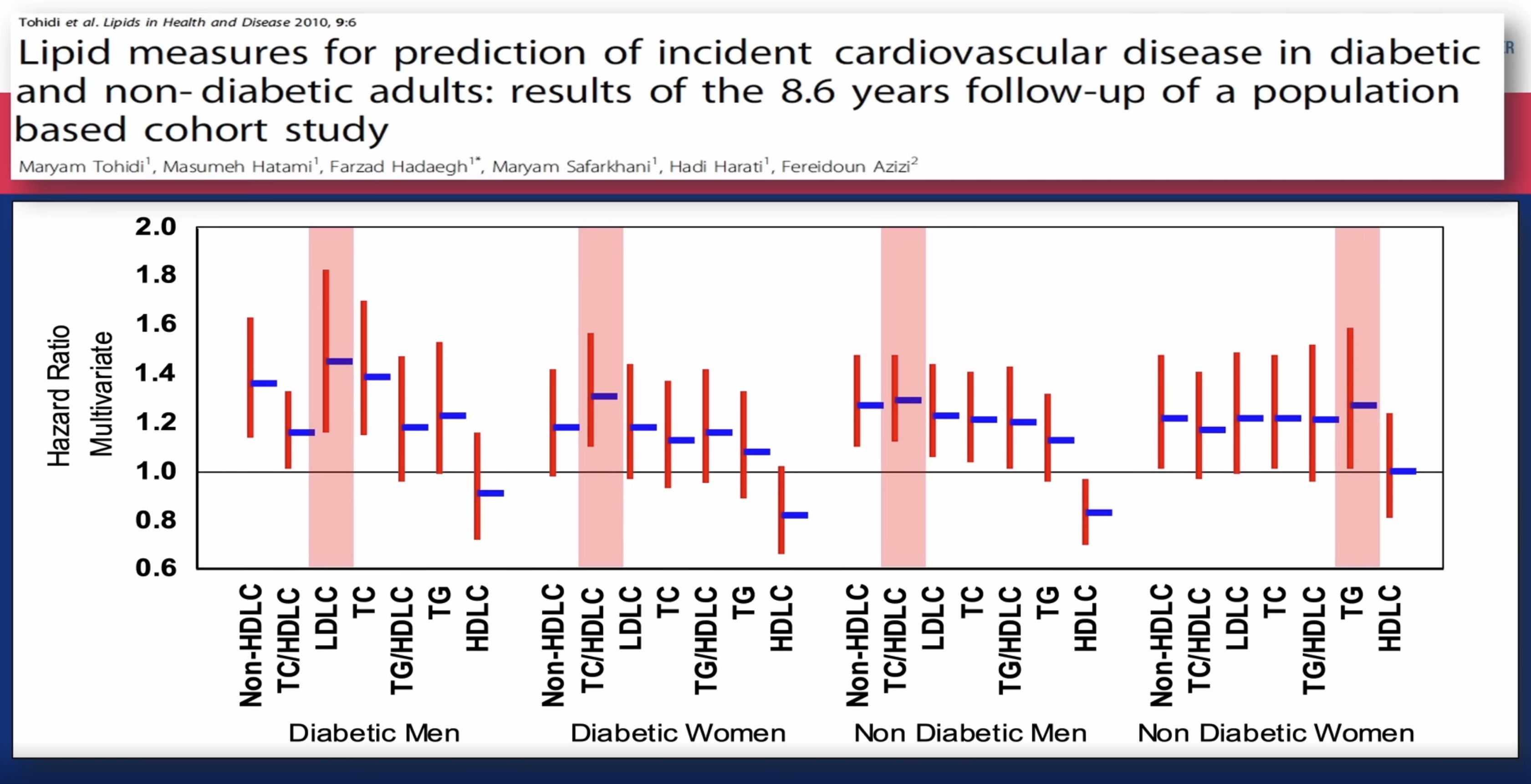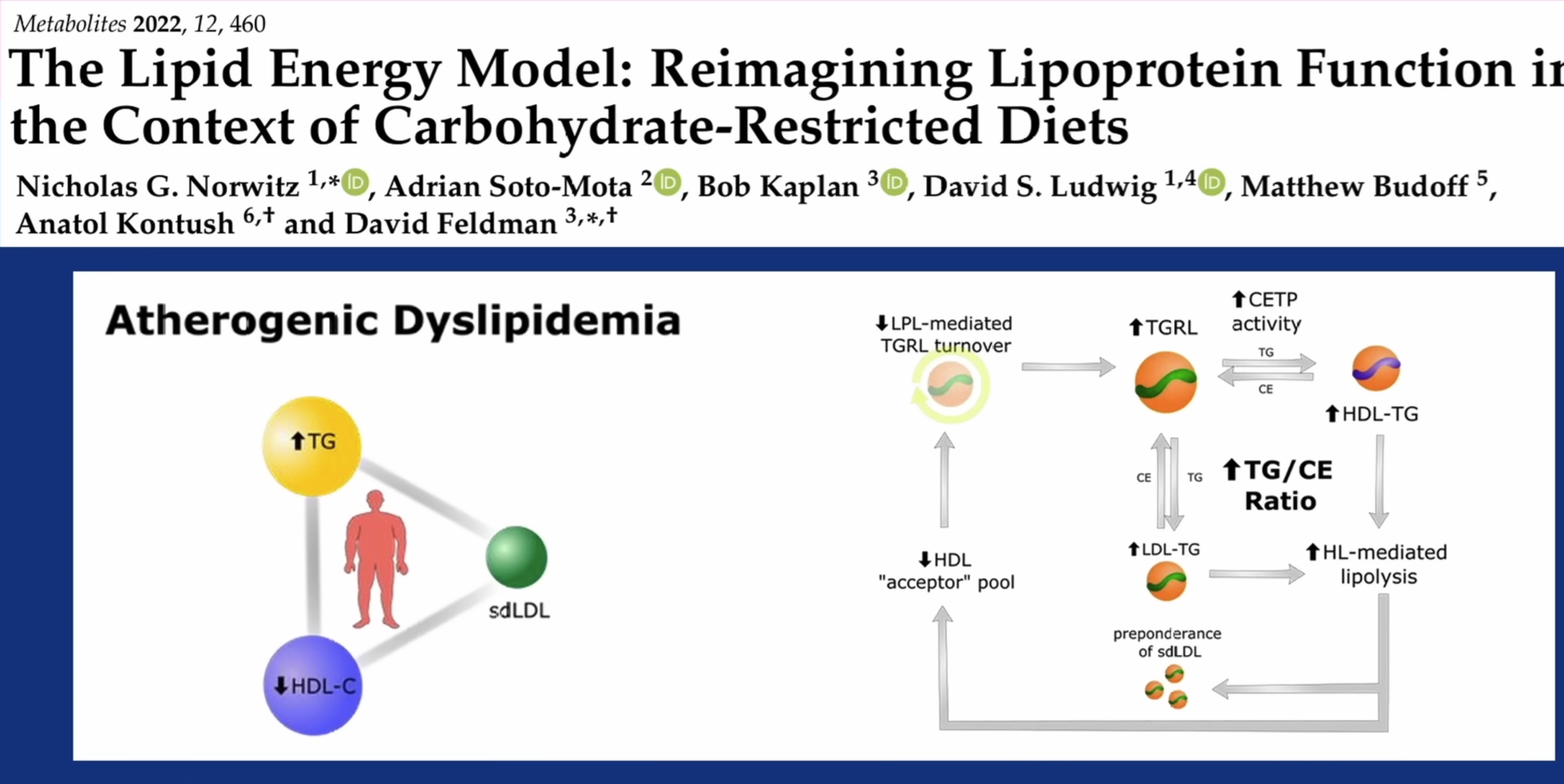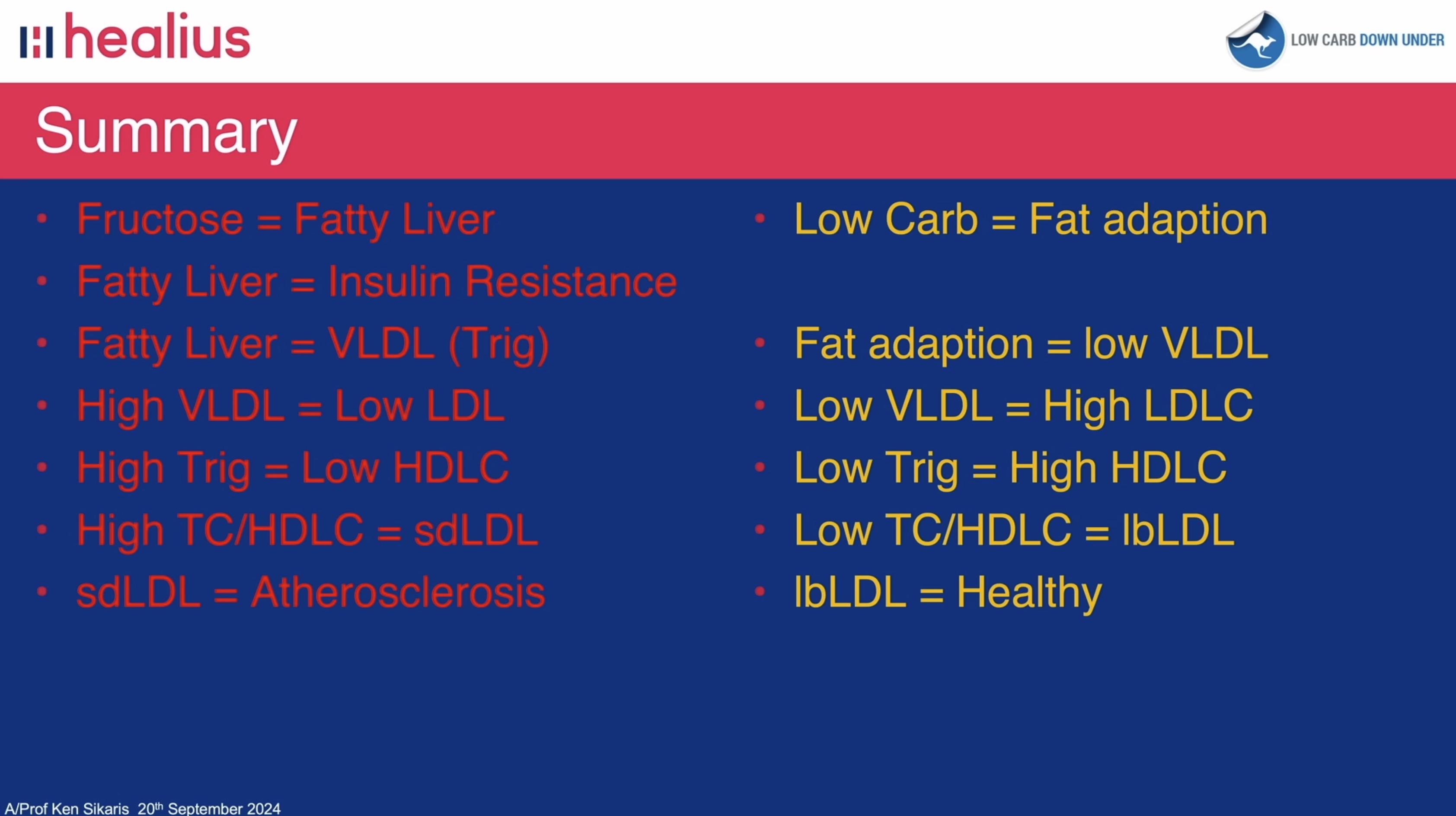A graduate of the University of Melbourne, Dr Sikaris trained at the Royal Melbourne, Queen Victoria, and Prince Henry's Heidelberg Repatriation Hospitals. He obtained fellowships from the Royal College of Pathologists of Australasia and the Australasian Association of Clinical Biochemists in 1992 and 1997 respectively.
Dr Sikaris was Director of Chemical Pathology at St Vincent's Hospital in Melbourne between 1993 and 1996. A NATA-accredited laboratory assessor, Dr Sikaris specialises in Prostate Specific Antigen, cholesterol and quality assurance and is currently chair of the International Federation of Clinical Chemistry Committee on Analytical Quality. His expertise is highly sought and he has presented extensively at national and international symposiums.
summerizer
A/Prof. Ken Sikaris - 'Analysing The Cholesterol Message'
In this enlightening lecture, A/Prof. Ken Sikaris discusses the complexities of cholesterol, triglycerides, and their relationship to diet, particularly low-carb diets. Drawing on his extensive research and clinical experience, he emphasizes the importance of understanding different types of LDL (low-density lipoprotein) and their implications for cardiovascular health. He critiques traditional views on cholesterol and advocates for a more nuanced understanding of lipid profiles, with a special focus on the role of diet in influencing these markers. Dr. Sikaris presents evidence supporting low-carb diets as beneficial for managing cholesterol levels and reducing the risk of fatty liver disease, while also explaining the biochemical mechanisms behind these changes.
Key Points
Introduction to Cholesterol Research
A/Prof. Ken Sikaris shares his background and initial interest in cholesterol management. He recounts how his own poor health metrics in 1989 spurred his deeper investigation into cholesterol types, which led to significant findings regarding small dense LDL and its association with cardiovascular diseases.
Evolution of Dietary Perspectives
In 2008, Robert Lustig's lecture catalyzed a shift in how scientists and clinicians viewed carbohydrates and their impact on health, particularly regarding sugar and fructose. Dr. Sikaris reflects on how these insights influenced his own dietary choices and professional focus.
Impact of Low Carb Diets on Lipid Profiles
Research indicates that low-carb diets can significantly improve lipid profiles by lowering triglycerides and increasing HDL (the 'good' cholesterol), providing a more beneficial total cholesterol/HDL ratio compared to high-carb diets.
Fructose and Fat Accumulation
Dr. Sikaris discusses how high fructose intake correlates with increased triglycerides and fatty liver disease. He notes that while glucose may not convert to fat in the same way, fructose promotes fat accumulation more readily.
Importance of Triglyceride Measurements
Triglycerides serve as a crucial indicator for predicting fatty liver development and cardiovascular risk. Dr. Sikaris emphasizes the utility of triglyceride levels over traditional cholesterol measures for assessing metabolic health.
Insights from Recent Studies
Dr. Sikaris reviews various studies demonstrating that high-carb diets may lower LDL but also reduce HDL, while low-carb approaches improve the total cholesterol/HDL ratio—a key predictor of cardiovascular health.
Small Dense LDL and Cardiovascular Risk
The speaker highlights the importance of small dense LDL as a significant risk factor for atherosclerosis. He connects dietary habits with the type and density of LDL particles present in the bloodstream.
Conclusions on Health and Diet Relationships
The lecture culminates with a perspective that both health and disease conditions stem from how diet impacts lipid metabolism. There is a clear dichotomy where low-carb diets enhance metabolic health by reducing harmful lipid profiles.
